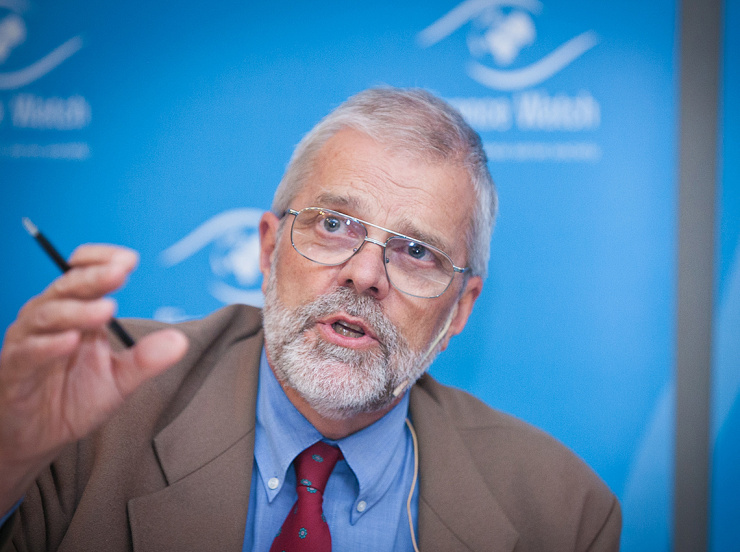Juin 2020
Entretien
Spotlight on... Paul H. Dembinski

Lisez cet entretien en français
Professor Paul H. Dembinski was born in Krakow, Poland. He speaks English, French, German, Polish and Spanish, and has passive knowledge of Italian and Russian. His journey brought him from Poland to Switzerland, with stops in Cameroon and the United Kingdom along the way. He obtained a PhD in economics in 1982.
He is a professor at the University of Fribourg and currently occupies the chair of International Strategy and Competition. In 1989, he co-founded Eco’Diagnostic, a fully independent, interdisciplinary economic research institute. He was awarded the title of Doctor honoris causa by the Warsaw School of Economics. In 1996, he became the founder and executive director of the Observatoire de la Finance in Geneva, which endeavours to promote ethical values in the financial sector. He is the author of a dozen books and around sixty scientific papers on the globalisation of companies, competition and ethics in finance.
Professor Dembinski has taught at the Faculty of Translation and Interpreting (FTI) since 2011 as Fixed-term Professor and has collaborated to the course of Macroeconomics and the course of Public Finance, in order to discharge Professor François Grin, who was elected president of the Délégation suisse à la langue française (DLF) that very year.
What does teaching economics mean to you?
Economics covers an array of different subdisciplines, from finance to management, and presents a fascinating universe that is in the clutches of numerous epistemological tensions. Teaching economics therefore demands that we make both epistemological and philosophical choices. I have had the good fortune to have worked with a large number of subdisciplines and research methods, which have allowed me to bolster my convictions. This, in turn, has shaped my teaching. My main conviction is that, in spite of all formal developments, economics remains primarily a social science that is rooted in history and thus exposed to multiple forces, which include the economy. This gives rise to a second conviction, which is that it is necessary to remain grounded in reality. As lovely and captivating as a model may be, it is merely a tool that provides us with a better understanding of reality. As a teacher, I try to abide by the following cautionary words: only that which is is clearly thought out is clearly expressed.
How were the last few months for you in terms of the quarantine and online teaching?
The quarantine caught me off guard at a peculiar time. I usually travel four or five times a month, but at the beginning of the year, I had decided not to travel between March and June in order to focus on a certain number of projects. More than being a technological experiment, the quarantine was above all a social and – let’s not mince words – existential ordeal. Time went by quickly, between getting up to date with new technology in the infernal Zoom-Skype-Team cycle, and the necessity of managing teams and crisis situations online. My writing projects were the greatest victims of this period, which may deceptively have appeared to be calmer. I did do some online teaching in Swiss, Polish and Italian “classrooms”, and each time, I was impressed by how diligent the students were, so hats off to them.
To conclude, tell us a bit more about your time teaching at the FTI and your plans after retirement.
In 1979, the University of Geneva became my first employer. A lot of time has passed since then. Now, at the age of retirement, I will finally be leaving this institution, but not the many friends who reside within it. After teaching for ten years in the economics department, I opted to split my career between, on the one hand, a professorship in Fribourg, and, on the other hand, practical and operational activities. Economics in terms of knowledge, and economics in terms of decision-making – these are the two facets of reality, which continue to interest me. I believed that my students at the FTI were also intrigued by these two aspects, particularly when economic issues began making headlines in the media in the years following the financial crisis. I have good memories of those classrooms in which lectures were at times transformed into seminars. Since my work has led me to a certain degree to anticipate two systemic crises – the collapse of planned economies and the financial crisis – my objective over the next few years is to delve deeper into the notion and reality of “systemic crisis”. The current situation will evidently make this inquiry less theoretical.
